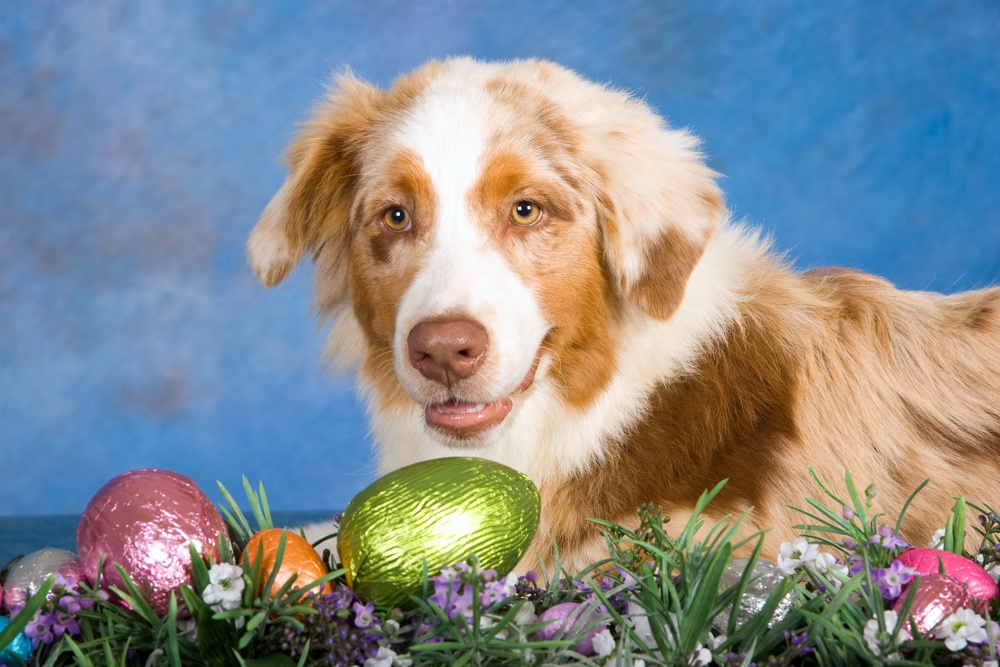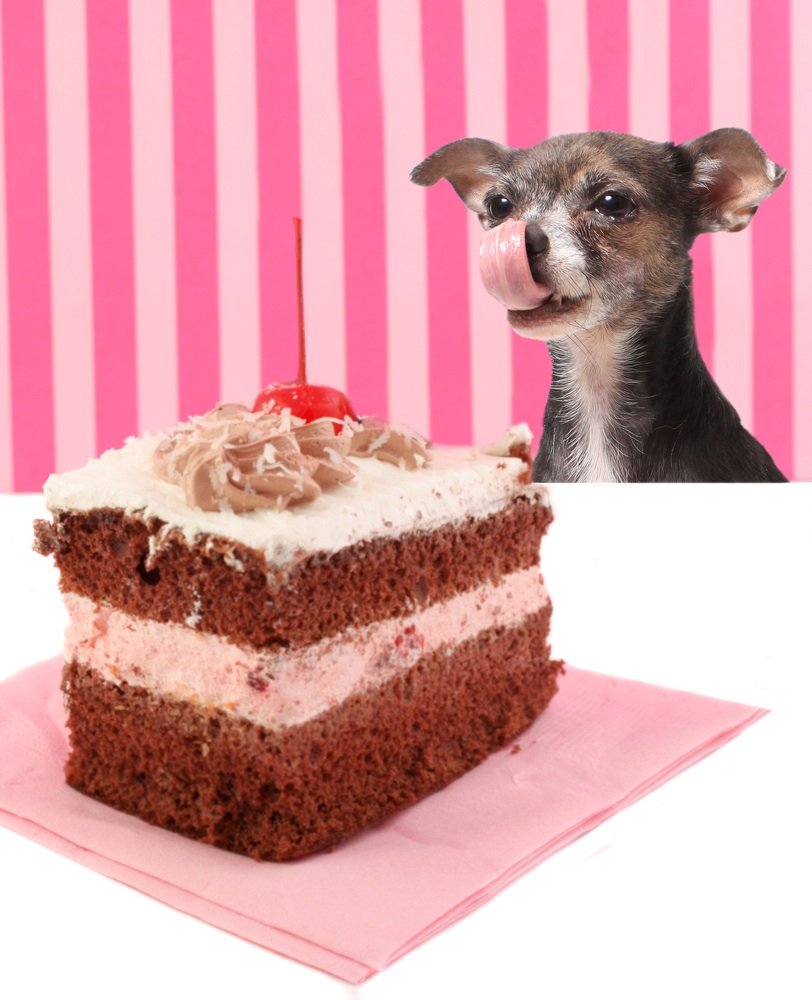Dogs and chocolate

Be sure to keep Easter eggs and chocolates well out of reach of your dog. Don't forget to explain to children too that it's really important that they don't share their chocolate with the family pet. Although dogs will eat chocolate readily, it can actually poison them. This is because it contains a chemical called theobromine.
Dark or baking chocolate is the most harmful type of chocolate, thanks to its relatively high level of this chemical, compared with milk chocolate. White chocolate is relatively safe however, containing very little theobromine, as the chart below shows.
How much?
Guide figures for chocolate toxicity, based on a dog's body weight are:-
Dark chocolate - 2.8g per 0.45kg (0.1oz/lb) = 28g (1oz) for a dog weighing 4.5kg (10lb).
Milk chocolate - 11.3g per 0.45kg (0.3oz/lb) = 113g (4oz) for a dog weighing 4.5kg (10lb).
White chocolate - 5670g per 0.45kg (200oz/lb) = 57kg (125lb) for a dog weighing 4.5kg (10lb).
Symptoms
If the worst happens, and your dog does eat some chocolate, its impact will depend partly on the size of your pet, with small dogs being most vulnerable to harm. A dog suffering from chocolate poisoning becomes very restless, and is likely to start shaking and twitching within about four hours of eating it.

Its heart rate will also have increased, and breathing difficulties may become apparent too. Sometimes though, a dog can simply be sick, which helps to prevent the theobromine being absorbed into the body, and in milder instances, diarrhoea may be the only evident result.
Don't delay in contacting your vet if you think that your dog has consumed chocolate which could harm its health though. In a severe case, a dog can ultimately slip into a coma and will die if not treated.
It is particularly important to seek veterinary advice if your pet is diabetic. Watch your dog with cakes containing chocolate too, because these could also be potentially dangerous as well, especially for smaller individuals.
Chocolate treats sold for dogs are safe, in terms of theobromine poisoning, but avoid using them except in moderation, because of the risk that your pet could become overweight and will be more vulnerable to diabetes. These treats should not be confused with ordinary chocolate drops that do contain potentially dangerous amounts of theobromine. It is not just this chemical that may be significant. Liquer chocolates may be particularly hazardous, because of their alcohol content as well.